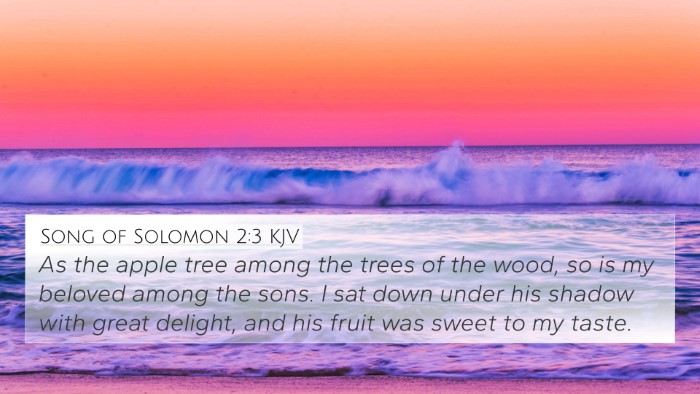Understanding 1 Peter 2:3
Verse Text: "If so be ye have tasted that the Lord is gracious." (1 Peter 2:3 KJV)
Meaning and Interpretation
This verse implies the necessity of personal experience with God's grace. Peter emphasizes the importance of not just hearing about the grace of God but actually experiencing it. This is fundamental in the life of a believer, as it fosters a deeper relationship with Christ.
Insights from Commentaries
- Matthew Henry: Henry illustrates that tasting the Lord's goodness leads to an enhanced appreciation of His mercy. The idea of 'tasting' signifies a deep and personal interaction with God's grace, akin to savoring food that nourishes and sustains us.
- Albert Barnes: Barnes connects this experience of tasting the Lord's graciousness as essential for spiritual growth. He suggests that one cannot genuinely grow in faith without first recognizing the goodness of God through personal trials and experiences that reveal His mercy.
- Adam Clarke: Clarke emphasizes the necessity of experiencing God’s grace to truly understand the nature of divine benevolence. He echoes the thought that this experiential knowledge makes it easier for one to live righteously and encourages a longing for spiritual nourishment.
Bible Verse Cross-References
In studying 1 Peter 2:3, several other verses come to light that relate and enhance its understanding:
- Psalms 34:8: "O taste and see that the Lord is good: blessed is the man that trusteth in him."
- Hebrews 6:5: "And have tasted the good word of God, and the powers of the world to come."
- Ephesians 2:7: "That in the ages to come he might shew the exceeding riches of his grace in his kindness toward us through Christ Jesus."
- Titus 3:4-5: "But after that the kindness and love of God our Saviour toward man appeared, Not by works of righteousness which we have done, but according to his mercy he saved us."
- Romans 5:8: "But God commendeth his love toward us, in that, while we were yet sinners, Christ died for us."
- 2 Peter 1:4: "Whereby are given unto us exceeding great and precious promises: that by these ye might be partakers of the divine nature, having escaped the corruption that is in the world through lust."
- John 15:15: "Henceforth I call you not servants; for the servant knoweth not what his lord doeth: but I have called you friends; for all things that I have heard of my Father I have made known unto you."
Connections Between Bible Verses
These verses collectively illustrate the beauty of God's grace and how it impacts the believer's life. They create a rich tapestry of connection, affirming that experiencing God’s goodness must lead to a transformation characterized by trust and faithfulness.
Linking Bible Scriptures
When cross-referencing these texts, one can observe a scriptural cross-referencing pattern that enhances the overall message about God’s generosity and grace. Such connections illustrate how various Biblical texts interlink to form cohesive theological insights focusing on grace and salvation.
Understanding Through Comparative Bible Verse Analysis
The comparative analysis of these verses allows for a deeper understanding of spiritual nourishment. As 1 Peter 2:3 emphasizes tasting God’s grace, other verses underscore the need to trust and recognize His goodness, leading to a blessed and fruitful life.
Conclusion
The verse 1 Peter 2:3 serves as a powerful reminder of the experiential nature of faith. Through the insights from Matthew Henry, Albert Barnes, and Adam Clarke, as well as the connections drawn from other scriptures, we recognize the importance of tasting and seeing the goodness of the Lord as foundational to spiritual growth.
For anyone seeking to deepen their understanding of this passage, engaging with its context and its thematic undercurrents, and cross-referencing it with related verses, is a profound way to appreciate the richness of hearing God’s Word.









